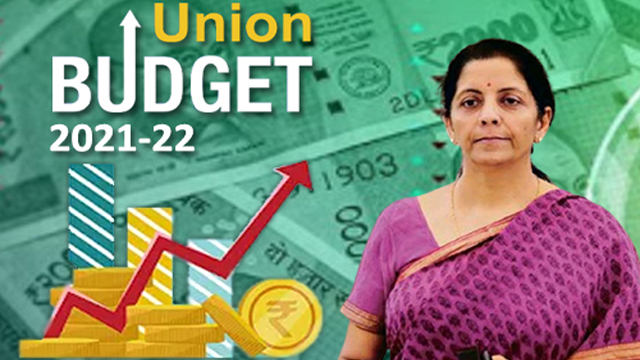The Union budget for 2021-22 will be presented by Union Finance Minister Nirmala Sitharaman on 1 February 2021. Post prolonged lockdown due to Covid-19 and the crisis that followed up many have been curious about how the Indian economy would fare as the ramifications of the same is seen across the globe. But, former RBI Governor Duvvuri Subba Rao says that India will witness a V-shaped recovery. We bring in the view of Industry Giants and their expectations on this prior to the union budget.
 Mr. Prashanth GJ, CEO at TechnoBind
Mr. Prashanth GJ, CEO at TechnoBind
“Yes – there are pointers to a V-shaped recovery and are being talked about by the industry experts. But I would like to exercise caution and would say that to vehemently declare that we are on the path of a V-shaped recovery is slightly premature. Can we get onto a V-shaped recovery – surely yes. There are many reasons to support this – the fact that vaccines are now reality will bring in the much-needed confidence for the economy – we will see investments that were on a go-slow mode pick up steam, which will have a cascading effect for the positive on the economy. We have already seen 2 or 3 months of rising GST collections – they are surely tell-tale signs of a positive upward trend. But it is also a fact that India has lagged behind other emerging economies and that is where the budget needs to focus on – how do we work on the ‘ease of doing business’ part and the squeezed up liquidity situation for the Indian Corporates. Core sectors like steel, power, cement are still declined and this need to be spruced up with support in the budget, for these core sectors, recovery is very important for the overall economy to be in the growth model. The informal sectors which in essence have a big part in the Indian scheme of things also need to be looked into during the budget to ensure that this V-shaped economy that we are hoping for becomes a reality and India can benefit from the same”.
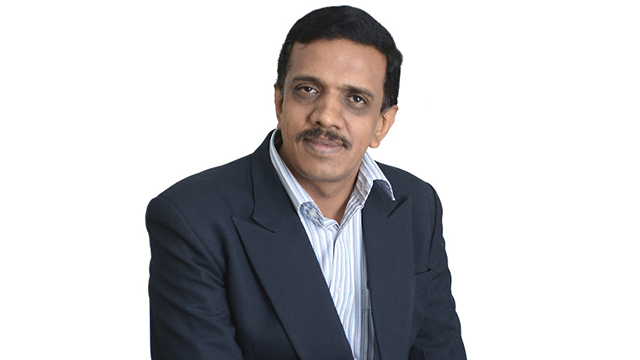 Mr. S Sriram, Chief Strategy Officer at iValue InfoSolutions
Mr. S Sriram, Chief Strategy Officer at iValue InfoSolutions
“Union Budget for 2021-22 is going to be challenging and a critical one with fiscal deficitchallenges on one hand along with the need to revive/sustain growth momentum across the board. Q1, Fy21 saw the biggest contraction by over 27% in GDP. Q2 was a good recovery moving H1 GDP to -11.6%. H2 GDP projection is estimated at 3.4% GDP growth implying Fy21 GD P numbers at -4.2%. Even before pandemic hit us, the GDP was decelerating steadily from 8.2% in Fy16 to 4.2% in Fy20 and now moving down to -4.2% in Fy21 which is an 8% fall in a year. Many small businesses have shut and many more have downsized in a big way leading to employment losses never seen in our history. The key need hence is to revive the economy, business and employment to drive consumption. Fiscal deficit worries need to be de-prioritized with a clear focus on growth revival and job creation.
Government has to lead recovery through CapEx both at central and state level. More money has to be put in the hands of business and people through direct and indirect tax cuts, to enhance spends. We have seen only corporate tax cut but nothing significant on personal and indirect tax side. Special incentive schemes need to be extended to businesses increasing headcount. Technology investments came as a saviour for businesses due to the sudden lockdown to manage the business continuity. With awareness at an all-time high on the need to go digital and online, Government has to incentivise technology adoption drive for all sizes of business in the near term to build resilience for managing possible second/third waves. The government also needs to take technology investments to overdrive mode for enhancing productivity, transparency and efficacy of its interface with business and people. Initiatives like 5G rollout needs to be fast-tracked with special focus around areas such as cybersecurity, AI, ML, IoT, Analytics, block-chain, etc. for a sustainable recovery with a view to keep India ahead in the coming years.”
 Mr, Shibu Paul, Vice President- International Sales at Array Networks
Mr, Shibu Paul, Vice President- International Sales at Array Networks
“The World Bank has estimated that India’s GDP will contract by 9.6 percent Fy 2020 -2021, this is based on a sharp decline in household spending and private investment. Keeping this in mind, the government should emphasis on reviving the country’s economy. With vaccinations being distributed across the country and declining Covid cases, businesses are set to make a comeback, but that comeback needs to be facilitated by the government by pumping more funds to keep the businesses running. The government has initiated many measures to counter cybersecurity concerns, more funds need to be allocated to fight cybercrimes which will only increase in number with the digital boom. The government needs to focus on creating strong domestic manufacturing policies favouring global companies to invest more in India. We would require the government to create policy frameworks that incentivize investments from big players in manufacturing locally in India. The government should provide a strong thrust for core R&D investments as part of its ‘Make in India’ initiative. The government needs to come up with practical tax slabs and custom duties for advanced networking and security products as these products will now more than ever be of importance especially with the digital India push and remote working relaxations. We expect the import/export process to be made digital and transparent so as to have an efficient RMA system for customers. There should be clear actions, policy and reforms to promote latest technologies like AI, IoT, Zero Trust, Machine learning, 3D printing, blockchain and simultaneously ensuring training facilities for all the mentioned technologies as part of skill development. The government has already given a huge push towards electrical vehicles, but there needs to be a planned allocation and execution of this project as we need to consider the implications of not conserving our surroundings.”
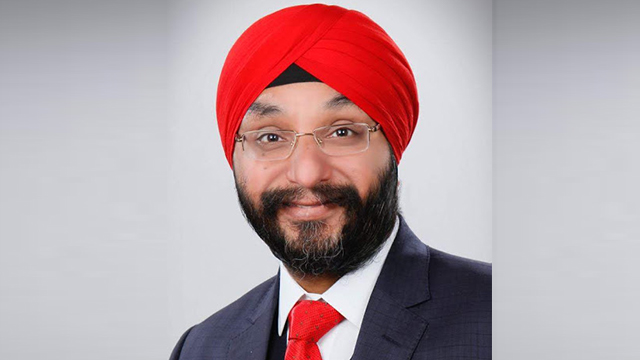 Mr. Gurpreet Singh, Managing Director at Arrow PC Network Pvt Ltd (Titanium Partner – Dell Technologies)
Mr. Gurpreet Singh, Managing Director at Arrow PC Network Pvt Ltd (Titanium Partner – Dell Technologies)
“India ranks 63 in the World Bank’s ease of doing business list featuring 190 countries. This is a testimony that India is a growing hub for investment, start-ups and MSMEs which is also witnessing a boom in the adoption of digital technology. But the upfront cost of adopting technology is also huge. The government needs to support organizations of various sizes with tax relaxations and subsidization which would lead to overall improvisation. To further facilitate the ease of doing business, the government needs to simplify various laws that are complicated and demotivate investors. The government should also look towards the reduction of personal income tax rates which would help the struggling economy and the people. With Covid-19 more and more companies have suffered irrespective of their sector and size, the government should support the businesses that are struggling to survive. The government should give more priority to the digital India movement that has gained momentum, especially in the past year. From remote working to digital shopping and interactions the growth has been tremendous, but to ensure this momentum is not lost due to lack of security and policies to protect the people, the government should come up with a robust cybersecurity policy. Tech companies that provide cybersecurity products and solutions should be given relaxations as more and more cybersecurity based companies are coming up in India.”
 Mr. Dipesh Kaura, General Manager, Kaspersky (South Asia)
Mr. Dipesh Kaura, General Manager, Kaspersky (South Asia)
“The financial budget for 2021 will be very crucial for various sectors including Tech/ IT, especially after the year 2020- where economic growth of our country almost came to a standstill, due to the pandemic and its after effects. However, it was the use of digital technology that helped companies run their businesses remotely and steadily throughout the year. It is a fact that the emerging trend of digital transformation created various opportunities for us, however, it also led us to a juncture where newer opportunities met newer threats. The use of digital technology has not only transformed the way we operate today, but has also opened gates for nefarious cybercriminals that are waiting to exploit our vulnerabilities. From growing number of cyberattacks on enterprises, critical infrastructures, consumers, to increased cyber warfare, we have witnessed a drastic change in India’s threat landscape in the past year. To keep the digital transformation ongoing, it is imperative to embed cybersecurity at the most initial stage of digitization. While Digital India is our future, the right investment made in cybersecurity today can help us secure this future, and hence the funds should be allocated accordingly. Increase in cybersecurity awareness and maturity amongst the growing internet users in India is equally important in order to protect them from the potential threats and encourage them to explore opportunities digitally.
It is true that the Finance Minister has to look at various aspects while announcing the budget, but with right investments made in the technology sector, the country is sure to soar to new heights.”
 Mr. Rajat Singhania, Founder of HyLyt by SocioRAC
Mr. Rajat Singhania, Founder of HyLyt by SocioRAC
“Last year Covid has impacted most of the startups who are struggling with revenue & cash flow and the government has provided much needed initiatives for their growth. I am hopeful that the government would bring benefits to the startups this year too.
We also welcome the Startup India Action plan announced by PM Modi recently. The initiatives such as tax reliefs, self-certification compliance, rebate on filing a patent and simplifying patent regime are welcome steps.”
Additionally, in the budget 2021 this year, we would expect the following –
- Last year startups have seen a decrease in lending by banks, so it would be great if the government relaxed norms in this regard.
- Reduction in GST rate would encourage the start-up sector to leverage professional services for business growth and get back on track with their operations.
- Policy towards data protection and privacy which is the need of the hour. The government is already working on it and early action would be an encouraging step.
- Priority clearances for Startups in case of regulatory requirements
- Specific initiatives to encourage govt and non govt entities to use the products and services of registered startups.
 Mr. Amit Gupta, CEO & Founder at Rapyder
Mr. Amit Gupta, CEO & Founder at Rapyder
The unprecedented Covid-19 pandemic has; without doubt; adversely impacted world economy at large. Almost every industry has borne the brunt and MSMEs are severely affected with many closing down, probably permanently. However, IT & ITeS sector has seen spike in growth across some industry verticals in the wake of the pandemic. Sectors such as EdTech, FinTech, HealthTech, HRTech, amongst others, have seen significant boosts. This will continue to fuel growth of Cloud-Tech, AI-based and other new-age technologies across business domains.
Knowing well that MSMEs are the biggest growth drivers to the economy and the second largest sector after agriculture, Government should extend credit facilities for them and provide means for new-age technology adoption. Rigid regulatory compliance and tax burdens should be revised, which can provide impetus for growth and expansion. This will increase hiring and businesses can largely contribute to the GDP. Revised tax policies, less complex GST structure and relevant policies that provide thrust for digital innovation can incentivize home-grown start-ups and brands. Such a solution can help MSMEs to operate in a more level-playing field which has MNCs and other established players.
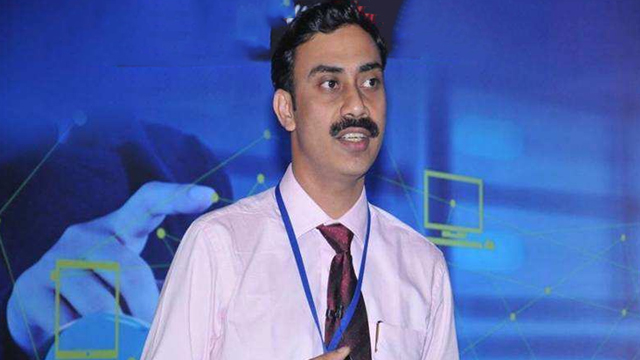 Pronam Chatterjee CEO, BluePi Consulting Pvt. Ltd.
Pronam Chatterjee CEO, BluePi Consulting Pvt. Ltd.
“Retail industry came to a virtual standstill during the pandemic and was one of the worst-hit sectors. The cascading effects impacted the entire value chain that serves the industry.
The festive season has shown signs of recovery with major retailers recuperating to around 90% of pre-covid sales. But the recovery is still nascent and not strong enough to carry on without support. A few things that we expect from the budget are measures to improve the disposable income in the short term, by reducing the tax burden and thereby spurring demand. The supply side of the value chain also needs to be supported by easing retailers’ access to capital.
Ease of doing business and access to capital should be the focus area for the retail sector in this budget. MSME does not cover the retail trading that constitutes a bulk of retailers; if they are not manufacturing. On the other hand, the garment manufacturers are considered MSME, but without a special package that assists them with working capital, they would also be left high and dry. So we expect the government to broaden the MSME umbrella and announce special packaged for retailers under MSME so that they can tide over these challenging times.”
 Mr.Gaurav Shinh, Founder and CEO at DAAS Labs
Mr.Gaurav Shinh, Founder and CEO at DAAS Labs
The government has started realizing the importance of new technologies like Artificial Intelligence and Machine Learning and has even called Data as the new oil in the previous Budget 2020 . According to a recent NASSCOM report, Deep-tech and new start-up hubs will continue to grow at 40-45% CAGR. It also stated that investments are expected to return to 2019 levels,after seeing a dip in 2020 (if not exceed in 2021).
The pandemic has been a huge boost to Edtech, AgriTech, FinTech, HRtech and HealthTech startups. So, we expect to see decisions to fuel the growth of cloud data storage, big data and AI technologies in several domains. The work from home trend due to the pandemic has seen a lot of investment being made in Tier II and Tier III cities and the trend is supposed to continue. Reforms are expected to support and enable these start-ups as they can have a huge long term impact.
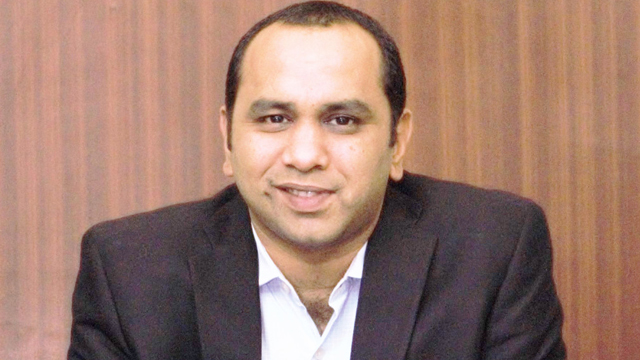 Mr. Ketan Doshi, MD, PayPoint India
Mr. Ketan Doshi, MD, PayPoint India
For the Payments industry, the honorable Finance Minister should reconsider the complete elimination of merchant discount rate (MDR) on Rupay and UPI transactions which will support a sustainable growth in digital payments. To further the Financial Inclusion in the country, I feel all transactions happening under PMJDY should be exempted from the GST levy. Bank accounts opened under PMJDY are basically of low ticket size. However, the operating cost to service this under-served community is very high till it reaches a substantial base hence the exemption. This Budget should have enough measures to infuse liquidity, benefiting small and medium enterprises, especially those in the hinterlands. PSU banks must lead this mandates in partnership with FinTech’s – either through co-lending or lead-generation model.


